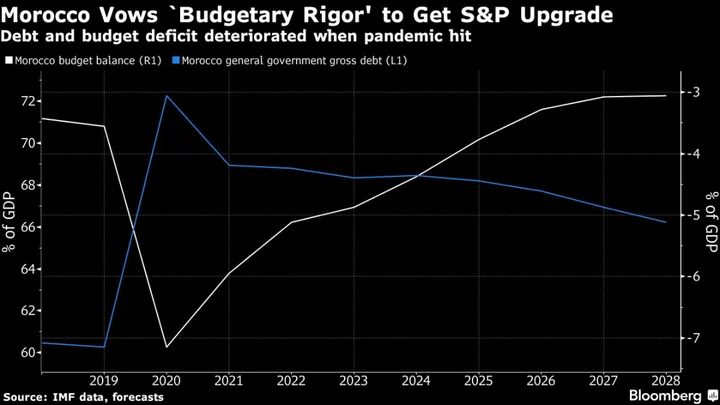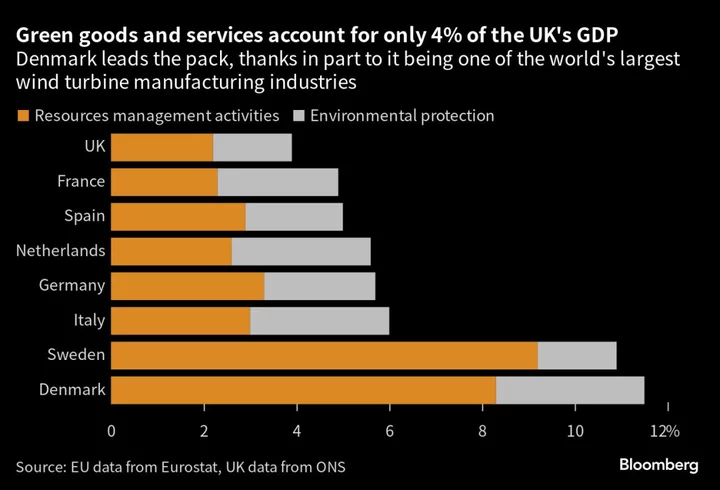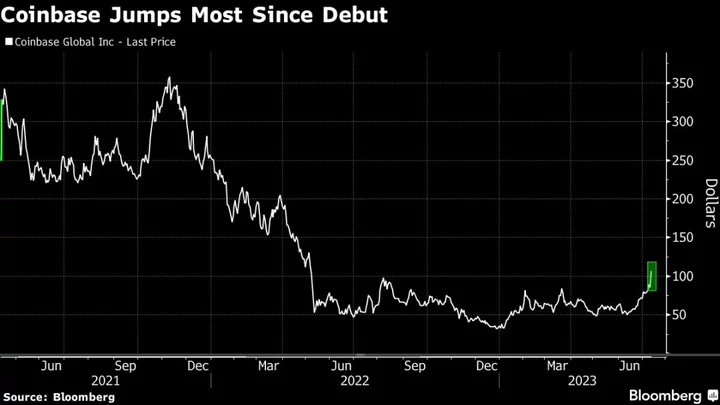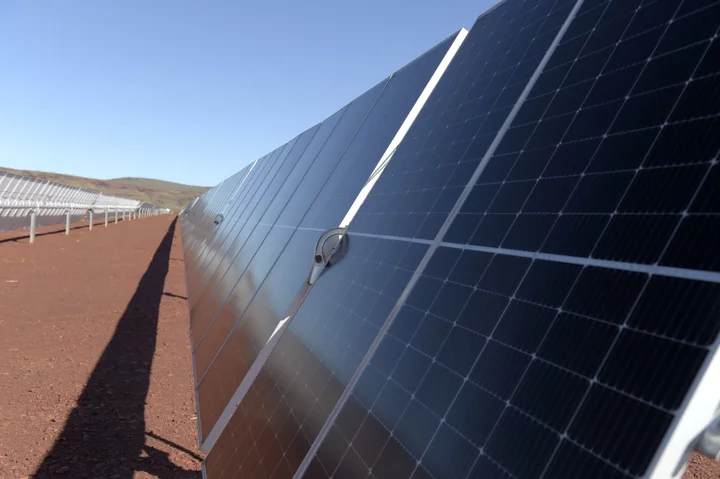Morocco is lobbying to regain an investment-grade credit score from S&P Global Ratings, vowing to keep its budget deficit in check despite massive new spending commitments stemming from a deadly earthquake and its co-hosting of the 2030 soccer World Cup.
The kingdom is targeting the “budgetary rigor” it had before the 2008 global financial crisis and has held talks with S&P in the aftermath of September’s quake, Finance and Economy Minister Nadia Fettah Alaoui said in an interview.
“We have the means to fulfill our ambitions and the programs that are on the table,” she told Bloomberg on the sidelines of the annual meetings of the International Monetary Fund and the World Bank in Marrakech.
Authorities have outlined a $11.7 billion recovery plan after Morocco’s deadliest earthquake in six decades struck the High Atlas mountains south of the city, killing about 3,000 people and uprooting many more. Morocco, along with Spain and Portugal, is set to host the FIFA World Cup in 2030, an undertaking likely to require more spending on stadiums and infrastructure.
The North African country has seen a drop in borrowing costs despite downgrades to BB+, a level deep into junk territory, by S&P and Fitch Ratings after the Covid pandemic hit the tourism-reliant economy. In February, it returned to the international debt markets for the first time since losing its investment-grade rating.
The $140 billion economy, which touts itself as an island of stability, has been seen as a relative bright spot for investors spooked by uncertainty elsewhere in the region. But despite Morocco’s recent efforts, rating agencies’ “perception of risk in Africa and countries like ours is penalizing for everyone,” Alaoui said, voicing a criticism that’s often leveled by developing nations.
In Africa, leaders including Senegalese President Macky Sall have demanded an overhaul of the credit-rating system, complaining that Western prejudice keeps borrowing costs unfairly high. Finance ministers are considering establishing a rating agency as an independent entity of the African Union.
Alaoui urged the international community to back African nations on the issue of scrutinizing credit rating during this week’s Marrakech meetings.
The Moroccan government will stick to a three-year budgetary plan announced before the earthquake. That targets lower budget deficits and stabilizing public debt at around 70% of gross domestic product.
Rating companies have singled out a possible improvement in Moroccan public finances as a key factor that could result in an upgrade. Fitch has said it’s waiting to see if Morocco is able to achieve “a material and sustained fall” in the ratio of general government debt to gross domestic product over the medium term.
“We could raise our ratings on Morocco if budgetary consolidation proves to be significantly faster than we expect, resulting in a substantial decline in net general government debt to GDP, while economic growth remains robust,” S&P said in an April report.
Moody’s Investors Service also ranks the debt one notch into junk. The outlook on Morocco’s rating is stable among all three major credit assessors, meaning a change up or down is unlikely any time soon.
Desalination Plans
Much of the reconstruction financing will come via budget allocations to the six affected provinces, with the government planning to boost receipts, including with a fight against tax evasion, to “complete the funding,” Alaoui said.
Authorities are also looking to ease the burden of infrastructure spending by expanding joint partnerships with the private sector to build hospitals and desalination plants, Alaoui said.
The latter facilities are especially pressing, as the kingdom faces an unprecedented drop in water supplies due to more frequent droughts. The government is seeking private investment to build 10 major plants, targeting half the country’s drinking water coming from the sea by 2027 versus just under 10% now.
The King Mohammed VI Investment Fund is planning to select private partners by the end of the year to help it raise 30 billion dirhams for projects also including agriculture and tourism, the body’s chief, Mohamed Benchaaboun, told Bloomberg in a separate interview.
‘Solid and Credible’
The future partners, among 46 fund management firms to bid in a May tender, will provide state- owned and private Moroccan firms with financing options to boost investment and expand their businesses, he said. The fund has a paid up capital of 15 billion dirhams ($1.5 billion).
Once it selects fund management firms and their work is done, Benchaaboun said, it targets leveraging the 45 billion dirhams in total capital to finance projects worth a combined 150 billion dirhams in five years’ time.
“Morocco is a solid and credible” partner for investors in renewable energy looking to capitalize on the large spending needs in Africa, Alaoui said.
The kingdom is on a “positive economic dynamic and is staying the course on its overall macroeconomic trajectory,” according to the minister. “Unfortunately, one year we are leaving a crisis only to be managing a new one the following year.”









